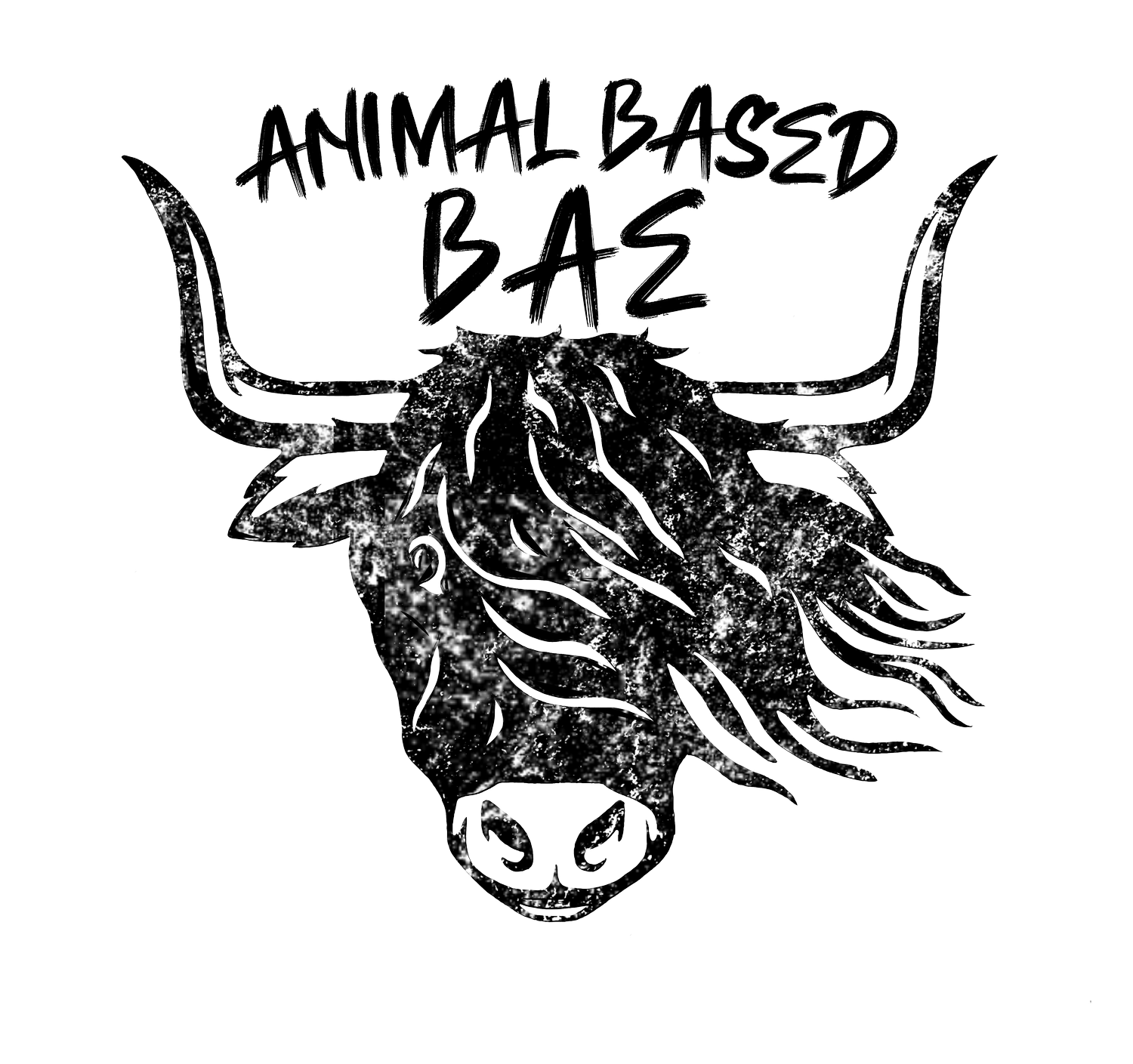Animal-Based Eating
Animal-Based Diet: Foods to Eat and Avoid
What to Eat on an Animal-Based Diet (Nose-to-Tail)
If you're new to the animal-based lifestyle, the first question is always the same: What do I eat? The answer: nutrient-rich, real foods that support your health, energy, hormones, and digestion.
This blog gives you a solid foundation—what to prioritize, what to reduce or avoid completely, and how to begin your journey with confidence. For a complete, in-depth list (with sourcing tips, macro calculations, brand recommendations, and recipes), download the full Animal-Based Diet Guide.
Organs: Nature’s Multivitamin
Organ meats are the ultimate superfood—rich in nutrients, bioavailable vitamins, minerals, and peptides that muscle meat simply doesn't offer. Eating organs also honors the whole animal and reduces waste.
Top organs to include:
Liver
Heart
Kidney
Tongue
Bone marrow
Pro tip: Sneak organs into your meals by mixing them with ground meat, sautéing in butter, or eating small raw pieces from trusted sources. If you’re not ready for fresh organs, try desiccated supplements from Heart & Soil (use code BAE10) or First Light Farms (code: ANIMALBB).
Muscle Meats: Prioritize Ruminants
Red meat from ruminant animals like beef, bison, lamb, goat, venison, and elk should be the foundation of your meals. These animals convert grass into highly bioavailable nutrients thanks to their four-compartment stomachs.
Poultry and pork can add variety—but choose corn- and soy-free, low-PUFA options for a healthier Omega ratio. As an Animal-Based Bae that prioritizes quality, you can check out my trusted farm sources HERE for a rundown of quality meats.
Eggs: Nature’s Perfect Package
Pasture-raised eggs offer an incredible nutrient profile: protein, healthy fats, and vitamins like A, D, E, B12, and choline. When selecting eggs for your animal-based diet, prioritize these optimal choices:
Pasture-Raised Eggs – Highest in nutrients, with hens roaming freely on pasture
Organic Eggs – Free from antibiotics and synthetic pesticides
Omega-3 Enriched Eggs – Enhanced with additional healthy fats
Local Farm Eggs – Fresh, seasonal, and supporting sustainable agriculture
For maximum benefits, choose pasture-raised eggs whenever possible—they offer superior nutrition and align with ethical farming practices.
Dairy: Choose A2/A2 & Raw When Possible
High-quality dairy provides protein, fats, enzymes, and beneficial bacteria. Look for:
A2/A2 raw or gently pasteurized dairy
Fermented options like kefir and yogurt
Grass-fed butter, sour cream, colostrum, and cheese
Struggle with dairy or think you're "allergic"? You might not need to give it up completely — it may be the quality and type of cow. Check out my blog on dairy to learn how to approach it in a way that works for your body.
Animal Fats: Fuel for the Brain & Body
Animal fats are nutrient-dense, brain-supportive, and hormone-friendly. These traditional fats contain the ideal balance of saturated and monounsaturated fatty acids that our ancestors thrived on for millennia.
Include the below animal-based fat in your diet:
Tallow
Suet
Butter
Ghee
Marrow
Lard
As an Animal-Based Bae, I highly recommend using these fats for cooking, sauces, and flavor instead of industrial seed oils or rancid and counterfeit oils.
Fruit: Nature’s Designed Dessert
Fruits are hydrating, energizing, and designed for consumption. They're rich in vitamins, antioxidants, and simple sugars that are easy to digest.
Some options to consider:
Apple, banana, berries, citrus, mango, papaya
Avocado, olives, cucumber, squash (non-sweet fruits)
Tip: Avoid eating the seeds! They’re not meant to be digested and can be irritating.
Honey: Nature’s Miracle Sweetener
Raw, unfiltered honey is more than just a sweet treat. It’s antibacterial, antioxidant-rich, and filled with easy-to-digest energy. Unlike refined sugars, raw honey offers a more balanced source of energy that your body can process more easily. When used intentionally, raw honey can be a perfect whole-food sweetener to your diet.
The Green List (Foods to Prioritize)
For a simple yet balanced and nourishing animal-based diet guide, focus on these nutrient-dense foods that will provide you with essential vitamins, minerals, healthy fats, and high-quality protein:
Organ Meats & Offal
Red Meat (Beef, Bison, Lamb, etc.)
Poultry & Pork (occasionally, soy/corn-free only)
Wild-Caught Seafood - Limit to once per week if you're concerned about heavy metals and microplastics. You can also source from a reputable company like Sea Topia (code: BAE20) which tests for and removes mercury, contaminants, and microplastics.
Eggs
Animal Fats
Raw, A2/A2 Dairy
Fruit (de-seeded)
Raw Honey, Maple Syrup
Beverages: Filtered water, coconut water, bone broth, raw milk
The Red List (Foods to Avoid)
Any animal-based diet guide you check, you’ll always see a list of certain foods to avoid. These are high in defense chemicals, PUFAs, or toxins:
Vegetables: especially leafy greens, nightshades, cruciferous, and roots
Grains, legumes, and all flours
Nuts, seeds, and seed oils
Processed sugars, sauces, chocolate, coffee, and teas
Most packaged foods
What About Coffee and Tea?
Some animal-based eaters still drink coffee—but it's not for everyone. It can boost dopamine and motivation but also raise anxiety, deplete minerals, and contain mold toxins. Listen to your body. It’s very important to be aware of how these beverages affect your body, especially for those who drink them regularly. Learn how to make coffee work for you — read my full coffee blog here.
Want the Full Green + Red + Gray Lists?
This blog is just the beginning. The complete Animal-Based Diet Guide includes:
Exhaustive Green/Red/Gray food lists
Sources and brands for each category
Substitutions for quick, flavorful and economic meals
Detox tips, food quantity advice, and more
>> [Get the Full Guide Here] <<
(Includes discounts on favorite brands + sourcing tips!)

